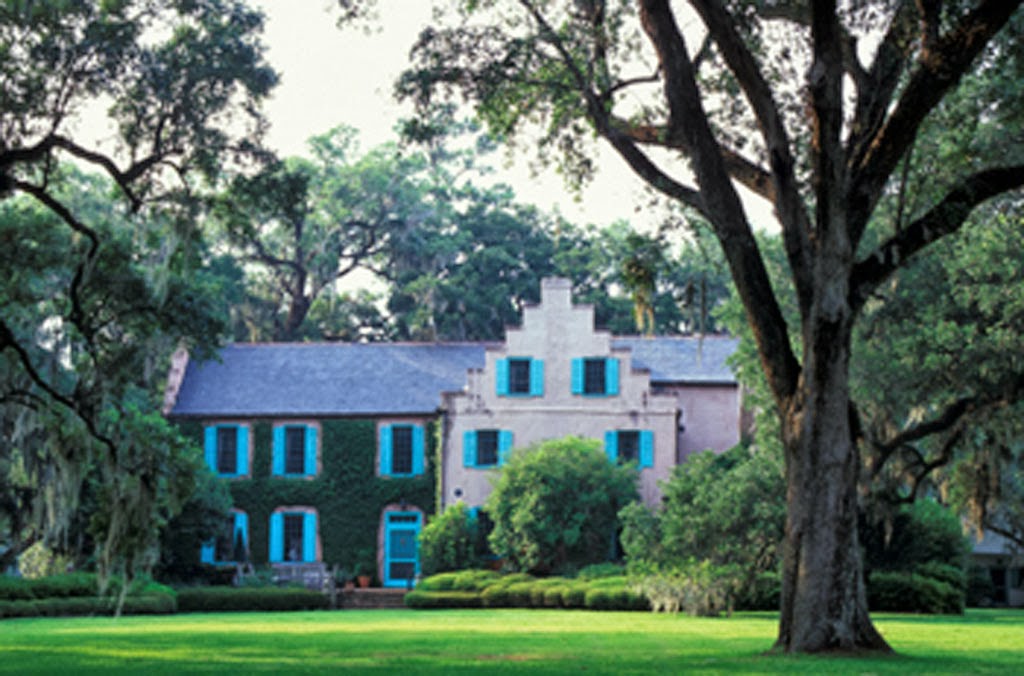 Few people have heard of the name Gertrude Sanford Legendre and highly unlikely the average person would have unless you are a history enthusiast. Up until recently, and I am a history enthusiast, I had seen her name only once and it was simply Mrs. Legendre. The occasion; I was reading a history article about Summerville's James F. Dean Theatre.
Few people have heard of the name Gertrude Sanford Legendre and highly unlikely the average person would have unless you are a history enthusiast. Up until recently, and I am a history enthusiast, I had seen her name only once and it was simply Mrs. Legendre. The occasion; I was reading a history article about Summerville's James F. Dean Theatre.My curious nature spurred me on to find out who the Legendre's were and how deep a connection they had with Summerville. What I uncovered about Gertrude in my research was truly fascinating and best summed up in her own words, "I don't contemplate life, I live it." What most of us conjure up in our wildest, black and white dreams, Gertrude lived in true to life cinematic splendor.
As I perused the written pages of her life, I thought of movies like Out of Africa and The Great Escape, names like Amelia Earhart, and characters like Charles Remington of The Ghost and the Darkness.
Her unusual story began years before she became Mrs. Legendre. Her birth name was Gertrude Sanford. She was born in the horse country of Aiken, South Carolina. She was daughter of Henry Sanford, a New York rug magnate and U.S. House of Representative, sister of Stephen Sanford, a famous polo star nicknamed "Laddie", and sister to Sara Jane Sanford.
A restless debutant and reluctant socialite, Gertrude forsook the soft social life for a rugged, outdoor diversion. As a young teenager, she shot her first elk while on a hunting trip to the majestic Grand Tetons of Wyoming. From 1923 to 1929, she went on expeditions to territories that would have been considered wild and untamed in her time, places like South Africa, India, Iran, Alaska, and Canada. Through her hunting expeditions, Gertrude contributed rare animal specimens to the Peabody Museum and the Smithsonian Institute.
It was after an expedition in 1929 to Abyssinia for the American Museum of Natural History she married co-leader Sidney Legendre, a home owner in Summerville. Sidney was a partner with his brother Morris, owners of a chain of Southern theaters with their headquarters in Summerville.
That same year, Gertrude and her new husband bought a piece of real estate in Berkeley County dating back to the late 1600's for $100,000. The historic Medway property, in Mount Holly on the Back River, included a 6,200-square-foot English country-style main house built around 1686 and considered the oldest masonry residence in the Carolina's. The Legendre's built Medway into a 6,695 acre enchanting plantation.
In the early 1930's, the Legendre's built a theater on the corner of South Main and E. Richardson in Summerville. Gertrude lined the walls of the theater with some of the big-game heads she acquired from her many hunting expeditions, a practice authenticated by preserved photos and recalled by those old enough to have witnessed. I spent a rewarding evening in an interesting conversation with one of Summerville's long-time residents who recalled attending the theater as a child. "Marion Rhanes was the projectionist at the old theater. He would play movies in his home for some of the young children of Summerville," he recalled fondly.
In 1944, the hunter became the hunted. During World War II, she worked for the Office of Strategic Services - forerunner of the Central Intelligence Agency. The agency transferred her to Paris as a second lieutenant. While visiting the battle front, she found herself pinned down by German sniper fire and was forced to surrender. She became the first American woman captured in France. After six months as a prisoner of war, she escaped and boarded a train to Switzerland. The train stopped just short of the border. After exiting the train in an attempted dash of desperation, a German guard ordered her to halt or be shot. She ignored it and gained her freedom.
In time, the queen of the hunt acquired a love and appreciation for the natural order of things and became a conservationist and philanthropist. In her later years, the Medway Plantation was turned into a nature preserve and she founded the Medway Environmental Trust for educational purposes. She also established the Medway Plan to provide medical help to countries devastated by war.
Gertrude Sanford Legendre is known as one of the grand dames of Charleston, and even though it may seem small in comparison, her connection with Summerville is indelibly transcribed in its annals of history for all times. You can read her autobiography The Time of My Life.


4 comments:
That's interesting to know!
I loved working for Mrs. Legendre she was the most kindness woman I've known.
knew her well. Went Medway often and even visited at her place on Fishers Island.
Went to Medway with her grandchildren often.Played golf and stayed with her at Fishers.Top drawer
Post a Comment